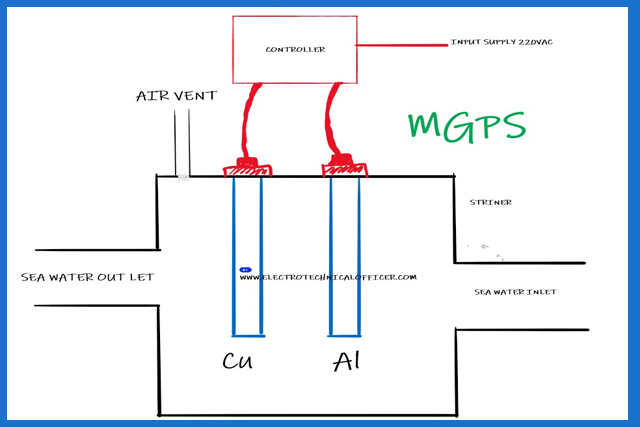ETO CoC syllabus
As per STCW
|
Annex 1 - Seafarers Training, Certification and Watchkeeping
(STCW) Code |
|
Part A - Mandatory standards regarding provisions of the annex
to the STCW Convention |
|
Chapter III – Standards regarding engine department |
|
Section A-III/6 Mandatory minimum
requirements for certification of electro-technical officers |
Function: Electrical, electronic, and control engineering at the operational level
Monitor the operation of electrical, electronic, and control systems
Basic
understanding of the operation of mechanical engineering systems, including:
·
Prime
movers, including the main propulsion plant
·
Engine-room
auxiliary machinery
·
Steering
systems
·
Cargo
handling systems
·
Deck
machinery
·
Hotel
systems
·
Electro-technology
and electrical machines theory
·
Fundamentals
of electronics and power electronics
·
Electrical
power distribution boards and electrical equipment
·
Fundamentals
of automation, automatic control systems, and technology
·
Instrumentation,
alarm and monitoring systems
·
Electrical
drives
·
Technology
of electrical materials
·
Electro-hydraulic
and electro-pneumatic control systems
Appreciation
of the hazards and precautions required for the operation of power systems
above 1,000 volts
Monitor the operation of automatic control systems of propulsion and auxiliary machinery
Preparation
of control systems of propulsion and auxiliary machinery for operation
Surveillance
of the main propulsion plant and auxiliary systems is sufficient to maintain safe
operation condition
Operate generators and distribution systems
Operate and maintain power systems in excess of 1,000 volts
Safety precautions and procedures
Electrical propulsion of the ships, electrical motors, and control systems
Practical knowledge
Operations
are planned and carried out in accordance with operating manuals, established
rules and procedures to ensure the safety of operations
Operate computers and computer networks on ships
Understanding
of:
·
Main
features of data processing
·
Construction
and use of computer networks on ships
·
Bridge-based,
engine-room-based and commercial computer use
Use internal communication systems
Operation of
all internal communication systems onboard
Function: Maintenance and repair at the operational level
Maintenance and repair of electrical and electronic equipment
Safety
requirements for working on shipboard electrical systems, including the safe
isolation of electrical equipment required before personnel are permitted to
work on such equipment
Maintenance
and repair of electrical system equipment, switchboards, electric motors,
generators and DC electrical systems and equipment
Detection of
electric malfunction, location of faults, and measures to prevent damage
Construction
and operation of electrical testing and measuring equipment
Function and performance tests of the following equipment and their configuration:
Monitoring systems
Automatic control devices
Protective devices
The interpretation of electrical and electronic diagrams
Safety measures for working are appropriate
Selection and use of hand tools, measuring instruments, and testing equipment are appropriate and interpretation of results is accurate
Maintenance and repair of automation and control systems of main propulsion and auxiliary machinery
Safe isolation of equipment and associated systems required before personnel are permitted to work on such plant or equipment
Practical knowledge for the testing, maintenance, fault finding, and repair
Maintenance and repair of bridge navigation equipment and ship communication systems
Electrical and electronic systems operating in flammable areas
Practical knowledge:
Carrying out safe maintenance and repair procedures
Maintenance and repair of electrical, electronic, and control systems of deck machinery and cargo-handling equipment
Safe isolation of equipment and associated systems required before personnel are permitted to work on such plant or equipment
Practical knowledge for the testing, maintenance, fault finding, and repair
Maintenance and repair of control and safety systems of hotel equipment
Practical knowledge:
Carrying out safe maintenance and repair procedures
Function: Controlling the operation of the ship and care for persons on board at operational level
Ensure compliance with pollution-prevention requirements
Anti-pollution procedures and all associated equipment
Prevent, control and fight fire on board
Knowledge of classes and chemistry of fire
Knowledge of fire-fighting systems
Operate life-saving appliances
Actions in
responding to abandon ship and survival situations are appropriate to the
prevailing circumstances and conditions and comply with accepted safety
practices and standards
Apply
medical first aid on board ship
Medical aid
Identification
of probable cause, nature, and extent of injuries or conditions is prompt and
treatment minimize the immediate threat to life
Application of leadership and teamwork skills
Working
knowledge of shipboard personnel management and training
Ability to
apply task and workload management, including:
·
Planning
and co-ordination
·
Personnel
assignment
·
Time
and resource constraints
·
Prioritization
·
Allocation,
assignment, and prioritization of resources
·
Effective
communication onboard and ashore
·
Decisions
reflect consideration of team experiences
·
Assertiveness
and leadership, including motivation
·
Obtaining
and maintaining situational awareness
Knowledge and
ability to apply decision-making techniques:
·
Situation
and risk assessment
·
Identify
and consider generated options
·
Selecting
course of action
·
Evaluation
of outcome effectiveness
Contribute to the safety of personnel and ship
Knowledge of elementary first aid
Procedures designed to safeguard the environment are observed at all times
How to prepare for ETO COC oral examination?
- Practice makes perfect so prepare well
- Prepare well in MARPOL, SOLAS, MLC, STCW, and SAFETIES
MACHINERY
Example:
- Alternator

- Refrigeration
- HVAC
- Air compressor
- Purifier
- Main engine
- Steering gear system

- Boiler
- Mooring winch and etc.
NAVIGATION EQUIPMENT
- RADAR
- AIS
- ECHO SOUNDER
- VDR
- BNWAS and etc.
POWER GENERATION
- Power factor
- AVR

- phasor diagram
- Star and Delta connection
- Synchronizing
- Distribution system
- Transformer

- High voltage
- Switch Gears
- Neutral systems

- Protection Devices and etc.
ELECTRICAL
- Fundamental laws and formulas

- Types of motor

- All types of starters.
- Shore Power

- Batteries

- Cable

ELECTRONICS
- Basic electronics
- Power electronics

- SCR
- THYRISTOR
- DIODE

- TRANSISTOR
- MOSFET
- IGBT
- OPERATION AMPLIFIER
- CONVERTOR
- INVERTER and etc.
SOLAS REGULATION
- All chapters
- Emergency generator regulations
- Steering gear regulations

- Emergency fire pump regulations
- Emergency battery regulations
- GMDSS regulations
- Lifeboat regulations
- Reefer cable regulations
- Bulk carrier ship regulations
MARPOL
- All annexes
- MARPOL EQUIPMENT: OWS, STP, GARBAGE COMPACTOR and INCINERATOR
SAFTIES
- MSB safties
- Engine room crane safeties
- Deck crane safties
- boiler safties
- Alternator safeties
- Steering gear safeties

- Incinerator safties
- main engine safties
- Lifeboat safeties
- Emergency generator safeties
- Bow thruster safties
- Tanker ship safties
- bulk carrier ship safties
- Container ship safeties
- IG safties
- Pump room safties
OTHERS
- Reefer container

- PCB
- PLC

- PID CONTROLLER
- EPIRB

- SART

- Electric propulsion
- Types of sensors
- ICCP
- MGPS

- DRILLS
- MEGGER METER
- MULTIMETER
- CLAMP METER
- Ballast water management and etc.

What should you do during the oral exam?
- Be punctual, don't arrive late for the exam
- Oral exams will be stressful so don't be panic. Keep calm
- Be positive and answer confidently
- Listen well and understand the asked question
- Take some time to answer questions during your oral.
- Don’t tell any story and provides an appropriate short answer.
- Always follow the safety guidelines before giving answers. Like work permits, risk assessment, and lockout take out.
- Should be avoided lengthy answer because it'll cause many cross questions
- Must be confident when gives your answer
- If you lose your confidence surveyor will ask many cross-questions.
Don’t stress yourself. You are destined to pass this exam with flying colors. All the best dear friends.
















8 Comments
What is ETO COC? Is there a course that is best for shipping companies?
ReplyDeleteElectricaltro hydraulic crane digram sent please
ReplyDeleteVery good effort sir...thanks for giving a basic but clear cut idea about the syllabus.
ReplyDeleteSir, please add previous model question paper
ReplyDeleteHow to access all oral questions content , some specific topic only able to open.
ReplyDeleteGreat overview of electric circuits! Understanding the differences between series, parallel, and combination circuits is crucial for troubleshooting and efficient electrical design. Your explanation of components like power sources, loads, and conductors helps clarify their roles in creating functional systems. Thanks for breaking down these essential concepts so clearly!
ReplyDeleteGreat readd thanks
ReplyDeleteThank you for sharing this Article.Hope would be helpful for clearing the Exam
ReplyDeleteWe love to hear your comments on this article, so that we may better serve you in the future.